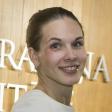International Governance and Diplomacy
A unique study programme in Latvia, providing the knowledge to obtain a Master's degree in international relations and diplomacy during the 2 years degree course.
Programme Fact File
Sociology, Political Science, Anthropology
accredited until
Master's Degree of Social Sciences in International Relations and Diplomacy
16 full fee
You can apply for Latvian state scholarships.
Read more
The programme prepares specialists for international organisations, diplomatic corps, international companies, non-governmental organisations, scientific institutes.
Academic Environment and Methods
Academic Environment
The programme provides the opportunity to study various aspects of international governance and diplomacy which teaches students the skills to think and act globally. During their studies students acquire the expertise to analyse, understand, and predict developments in international governance and diplomacy, as well as to provide reasoned opinions both orally and in writing.
Lectures are taught by both academics and practitioners, including current and former diplomats.
Students will be educated in various topics of international governance – small states in the international system; the history of international relations with an emphasis on great powers, wars, and diplomacy; international and diplomatic law, global economy and trans-national interests; the governance of the European Union; the foreign policy of the United States, the Peoples’ Republic of China and other great powers; the Middle East; energy security; security governance; e-governance and other issues.
In the third semester students can apply for Erasmus+ exchange studies.
Academic Methods
Studies are organised in the form of lectures and workshops with an emphasis on independent work.
- Syllabus
3. semester Category Course code Course title Structural unit Course supervisor ECTS B SZF_051 EU and International Governance Faculty of Social Sciences Māris Andžāns 6 B SZF_049 Foreign Policy Vectors of the People's Republic of China Faculty of Social Sciences Una Aleksandra Bērziņa-Čerenkova 6 B SZF_053 International Organisations Faculty of Social Sciences Gunda Reire 6 B SZF_050 Regional and Social Policy of European Union Member States Faculty of Social Sciences Tatjana Muravska 6 B SZF_052 Security Governance: the Euro-Atlantic Space and Beyond Faculty of Social Sciences Māris Andžāns 6 B SZF_105 Social Media and Digital Diplomacy Faculty of Social Sciences Māris Cepurītis 6 A SZF_054 Theories and Methods in International Relations and Diplomacy Faculty of Social Sciences Kārlis Bukovskis 6 4. semester Category Course code Course title Structural unit Course supervisor ECTS A PZK_032 Development of Master’s Thesis and Defence Faculty of Social Sciences Māris Andžāns 30
Admissions Requirements
General eligibility criteria:
- Bachelor's degree in social sciences or humanities
- English language proficiency
- Skype interview with the applicant
Study bases
RSU main building, 16 Dzirciema iela
Career opportunities following studies
Graduates of this study programme will possess the knowledge and skills to work for international organisations, diplomatic corps, international companies, non-governmental organizations, scientific institutes.
Further studies
You can continue to study at RSU in one of the following doctoral study programmes (the courses Communication Culture and Multimedia and Psychology are offered in English):
Head of Programme
Acting Researcher, Faculty of Social Sciences
Academic Staff, Faculty of Social Sciences
Working hours:
By appointment (e-mail).Contact Information
Faculty of Social Sciences
Fri, 8:30 -15:30











